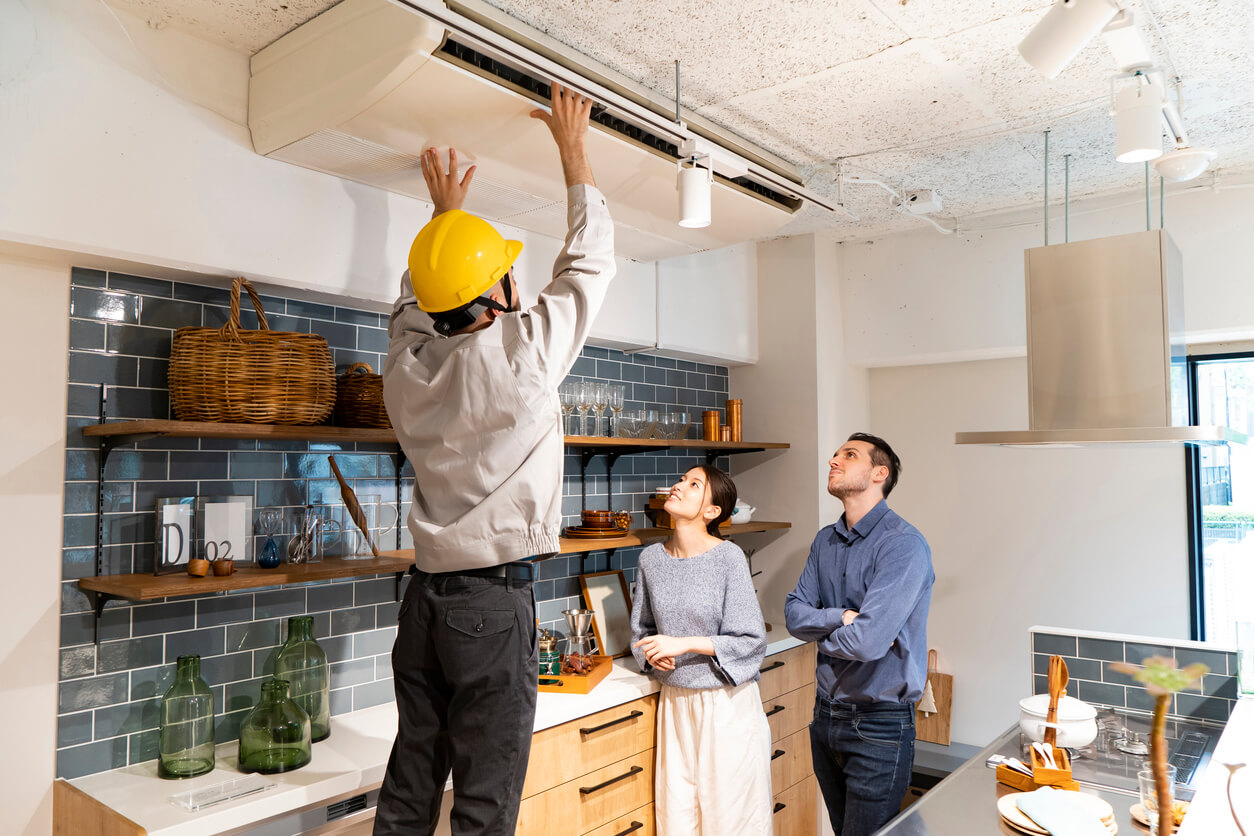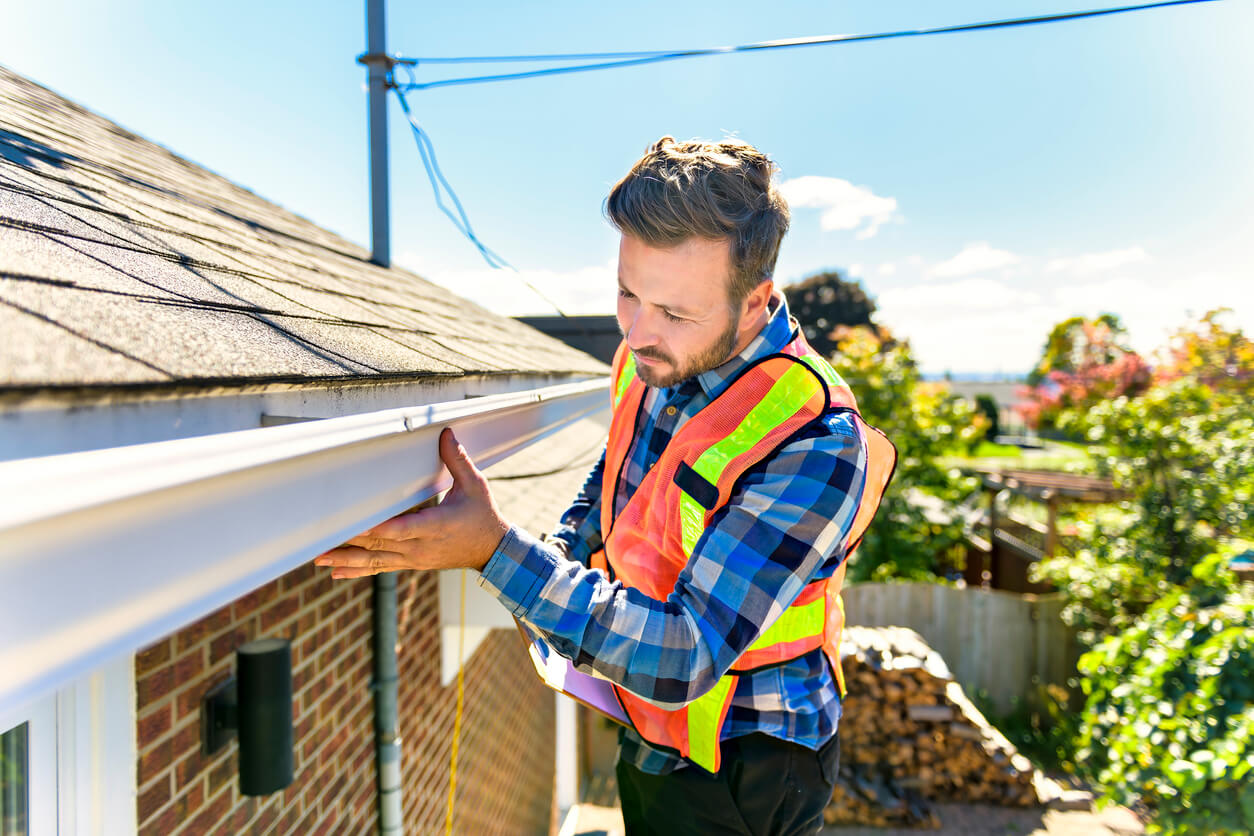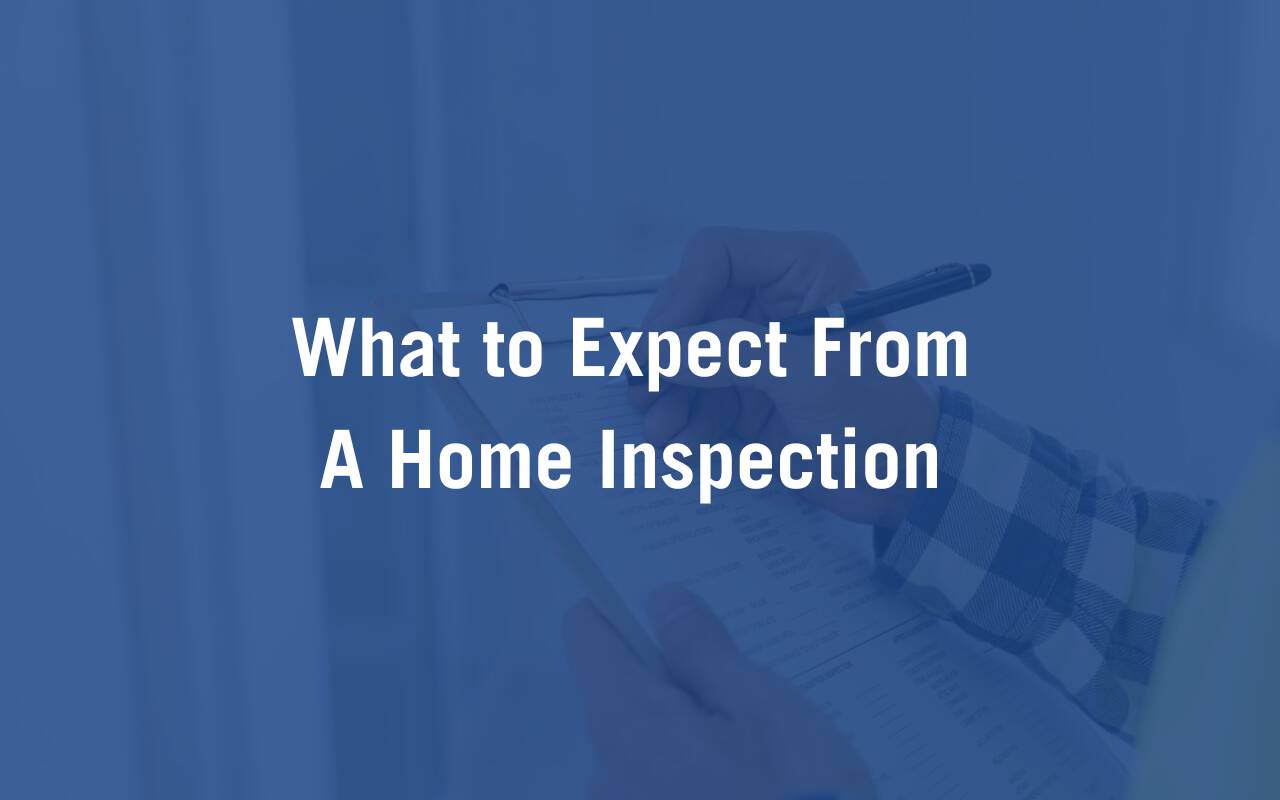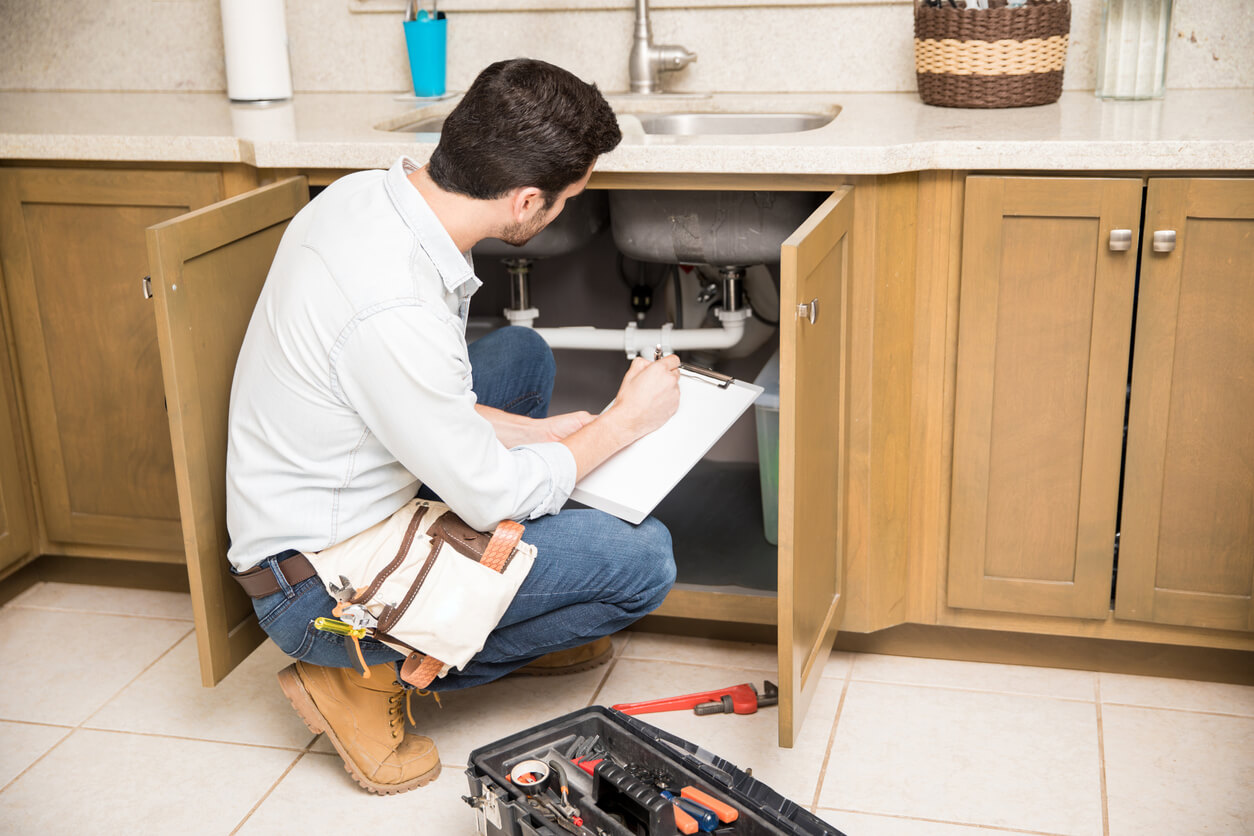Home inspections are one of the most important parts of the home-buying journey. This guide will help you figure out what to expect from a home inspection so that you stay informed and stress-free throughout the process.
Inspections let you know if any potential issues require fixing before closing on the home. Buyers typically conduct a home inspection after making an offer on a house as part of standard practice. Read on to learn more about things to look for in a home inspection and how Minnesota Exteriors provides free inspections and estimates for your needs.
- What Is a Home Inspection
- Why It Matters
- Home Inspection Cost
- How Long Is A Home Inspection
- Home Inspection Checklist
- Home Inspection Exclusions
- How to Prepare
- Understanding The Report
- Next Steps
- FAQ
 Have peace of mind with a FREE roof inspection to detect hidden issues and safeguard your home.
Have peace of mind with a FREE roof inspection to detect hidden issues and safeguard your home.
What is a Home Inspection?
The process of getting a home inspection is imperative in the buying process, but how does a home inspection work? These inspections assess the integrity and upkeep of the home to determine if any structural or operational issues need addressing.
A standard home inspection will include a detailed examination of the roof, windows, siding, plumbing and electrical system, and more. This process aims to prevent any major fixes that could affect the price, integrity, or safety of the home in question.
Home Inspection vs. Home Appraisal
Many people may think that a home inspection and a home appraisal are the same thing. However, home appraisals are a look at the home itself to determine its market value. An appraisal will tell you if the home’s refinancing potential or overall price is appropriate depending on its location, features, and structural integrity. Alternatively, an inspection will tell you if there are structural issues with the home.
 Noticing bugs and critters creeping in by your windows? Learn how to eliminate them and prevent their return.
Noticing bugs and critters creeping in by your windows? Learn how to eliminate them and prevent their return.
The Importance of Home Inspections
Home inspections prior to buying a house are crucial. Not only do they ensure that the home is structurally and physically safe, but they also help buyers uncover potential expenses that can affect the overall sale. For example, if you put an offer down on a home but the inspection of the property shows a major – and potentially dangerous – electrical issue, you can often renegotiate your offer.
Commonly, this may include asking the seller to fix the issue before the new owners complete their offer or coming to a new agreement on the price of the home so that the buyer can then fix the issue themselves.
This can even work as a tip for sellers to renegotiate prices if necessary – if a buyer brings in a lowball offer, sellers can argue that the inspection proves that the home is safe and in good condition.
The Cost of a Home Inspection
Home inspection price will vary depending on:
- Size of the home
- Location of the home
- Age of the home
- The inspector’s experience level
- If there are other services required, such as asbestos testing
The average home inspection costs around $350, but they can range from $200-$400 depending on the above-listed factors. Buyers typically pay for a home inspection before purchase so they can find an unbiased third party to conduct the inspection.
 Explore the Minnesota Exteriors blog to learn more tips for navigating all your home restoration and replacement questions.
Explore the Minnesota Exteriors blog to learn more tips for navigating all your home restoration and replacement questions.
How Long Does a Home Inspection Take?
A buyer’s home inspection generally takes anywhere from two to four hours. Again, this depends on the condition of the home, the size, and how thorough the inspector is. Seasonal influences can play a part in this as well, as winter months may make it more difficult to access the roof or to fully look at the condition of the siding.
Your inspector can give you inspection reports on the spot if you tag along with them. While going with the inspector is not a requirement, it’s often a good idea so you can ask any questions you may have and get an in-depth explanation.
What Do Home Inspectors Look For?
There are many things to look for during a house inspection, with the main goal being to identify any needed repairs or if there were builder oversights. Buyers need to know the general overview of what inspectors are looking for as well. Here is a detailed overview of what a home inspection when buying a house will include:
Exterior
- Siding is in good condition without any cracks, chips, or other damage
- Gutters have effective drainage and don’t sag leak, or overflow
- Window and door frames remain structurally sound and undamaged.
- Foundation is in good condition without any cracks, mildew, or other issues
- Porch, stairways, and any other outdoor structures don’t have damaged floorboards or termites
- No leakage from septic tank
- There aren’t any safety issues in the yard, driveway, or other outdoor areas
Roof
- No missing or damaged roof shingles or other structural issues, such as leaks or mold
- The chimney doesn’t have any cracks, obstructions, or brickwork problems
- Skylights are intact and don’t have leakage, ventilation problems, or structural damage
Attic
- Attic has proper insulation and ventilation
- No water damage, stains, or leaks from the roof
- No damage, decay, or issues with bugs
Basement
- No sign of water damage, moisture, or mold
- Floor is even and doesn’t have any cracks
- No existing rot or insect damage
- Sump pump is in good condition
Plumbing
- All visible plumbing for toilets, showers, bathtubs, and sinks is in good condition without cracks, water damage, or leaks
- All drains work properly
- The toilets are structurally stable and don’t have any signs of leakage
- Water pressure works well
- Hot and cold water works for necessary fixtures
Electrical
- No exposed wiring or dangerous splices
- Circuit breaker and electric panels have no sign of damage, overheating, or charring
- All light switches and fixtures are all connected and working
HVAC System
- Heating and cooling system works well without any gas odors
- Exhaust fans, air filters, and insulation are clean and in good condition
- Ductwork is clear and free of any damage
- Fireplaces and chimneys have proper ventilation, with flues showing no signs of cracks or other damage.
Additional Safety
- Any fire and carbon monoxide alarms work well and go off at appropriate readings
- There are no structural issues with railings or stairs
 Learn about home improvement financing options available so you’re ready for renovations and updates after inspection.
Learn about home improvement financing options available so you’re ready for renovations and updates after inspection.
Not Included in Standard Home Inspections
The factors listed above as standard home inspection requirements for inspections. However, this doesn’t mean that inspections for home buyers can’t include other areas. It’s a good idea to have an inspector check the following areas of the home as well:
- Appliances: Kitchen appliances, washer, dryer, and any other built-in appliances are in good working condition without gas leaks or other issues.
- Indoor Air Quality: The air quality in the home is safe and doesn’t have any pollutants, such as carbon monoxide.
- Pools: The pool or hot tub doesn’t have any leaks or cracks in the foundation. Also, it’s important to check the overall chemical balance of the water.
- Asbestos, Lead Paint, or Mold: The home doesn’t contain dangerous levels of mold or asbestos, and there are no signs of lead paint.
How to Prepare For a Home Inspection
When preparing for a home inspection before buying a home, there are many factors to consider. Some home inspection tips for buyers include:
- Looking into multiple inspectors to find the right one
- Attend the inspection, if possible
- Don’t be afraid to renegotiate with the seller if issues arise
- Take pictures during the inspection
There are several things that sellers can do to get ready for an inspection as well, such as ensuring accessibility to the entire house, providing any necessary documents, and cleaning the interior and exterior of the home to the best of your ability.
Hiring an Inspector
When searching for an inspector, make sure you ask them about their experience and what certifications they have. It’s also important to look into their reputation, which you can do by checking online reviews or asking your realtor, friends, and family for recommendations. This way, you can ensure that you find a qualified, certified home inspector for the job.
Noticing storm damage to your roof? Don’t forget to check for storm damage to your siding.
The Home Inspection Report
When the inspector has finished their evaluation, they will give you a report based on their findings. This should be a thorough list of anything that may be wrong with the property. The report may include photographs, the inspector’s notes, and potential recommendations for areas to fix or address.
Your inspector should go over the report with you to explain anything that may give you cause for concern. This also gives you the chance to ask any questions and ensure that you look over every aspect of the home before finalizing the buying process.
Inspection Next Steps
After you’ve gone over the inspection report, it’s time to decide what you want to do next. If the report doesn’t show any major damage or issues, then the buying process can continue as planned. You can send a list of minor issues or repairs you want fixed back to the buyer, but these are generally considered the buyer’s responsibility.
However, major issues can cause a roadblock. There are two options – asking the seller to fix these issues or deciding not to buy the home after all.
Resolving Discrepancies
For any major issues or unexpected findings from the inspection, you can ask the seller to make the necessary repairs before moving forward. You can also address these issues yourself but instead, have the realtor ask the seller to adjust the home’s price to reflect the repairs you’ll need to make. Whichever option you choose, make sure you communicate effectively and quickly with the seller and their realtor.
Sale Contingencies
If the seller is unwilling to fix the issue or lower the price, you can withdraw your offer entirely. However, some instances arise where the seller or inspector attempts to hide various issues that can cause problems down the line. In this case, it may be a good idea to find comprehensive legal advice on how to proceed.
Minnesota Exteriors: Trust the Experts For Your FREE No-Risk Inspections and Estimates
For potential home buyers, getting a detailed home inspection is imperative before continuing with the purchase of the home, and Minnesota Exteriors is here to help. We offer free inspections for roof and siding replacement, storm damage, insulation, and windows. This way, you can make sure that your home is in the best condition possible.
We work hard to provide our customers with quality service, expert workmanship, and top-of-the-line products. Reach out to our team for more information about how we can help you.
Home Inspection FAQ
How Does a Home Inspection Work?
A home inspection allows the potential buyer to discover any potential issues with the home before completing the sale. Typically, after a seller accepts an offer from the buyer, the home inspection will quickly follow.
Why Get a Home Inspection?
Home inspections help both buyers and sellers identify any safety concerns or major repairs that need to be addressed in the house. It can also give a better idea of the maintenance that the home may need in future years.
What Does a Home Inspection Cover?
Home inspections cover all major areas of a home, including the roof, windows, siding, plumbing and electrical systems, and the exterior.
Does the Realtor Schedule the Home Inspection?
The buyer is generally responsible for scheduling the home inspection. This can either be through your realtor knowing a reputable inspector or finding one yourself through reviews or research.
What Happens After a Home Inspection?
After a home inspection, the potential buyer has the option to either renegotiate with the seller for fixes or a price reduction, proceed as planned if there are no major issues, or withdraw their offer completely.



